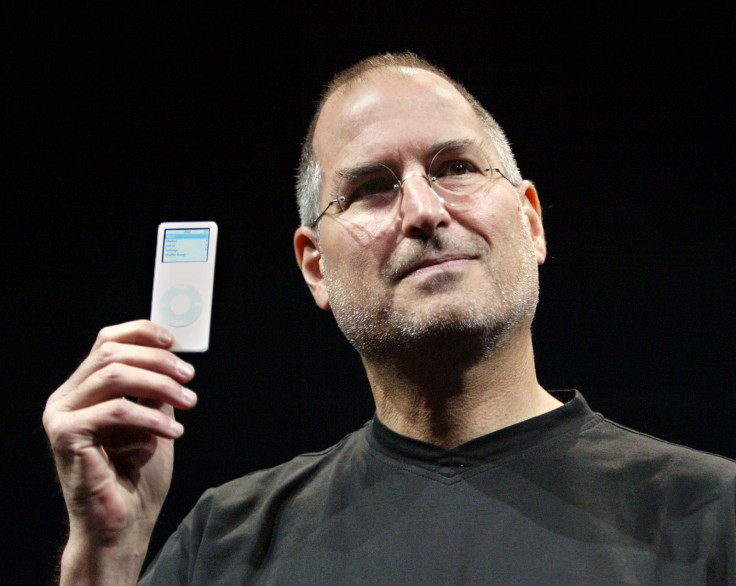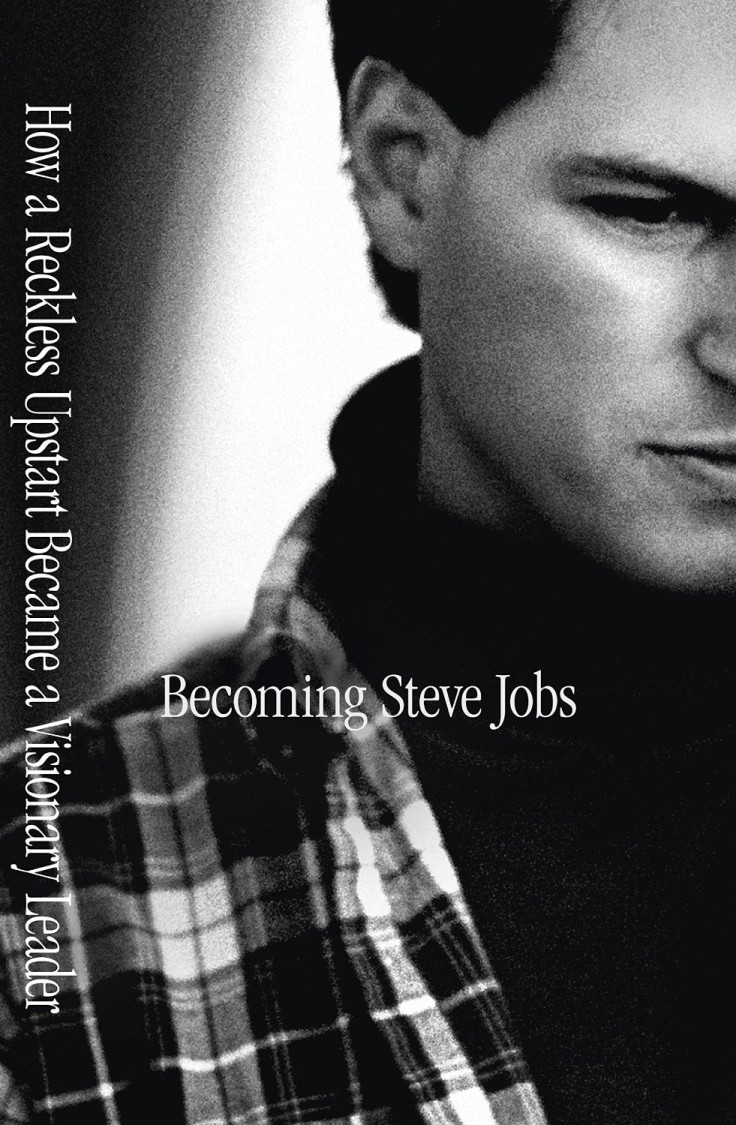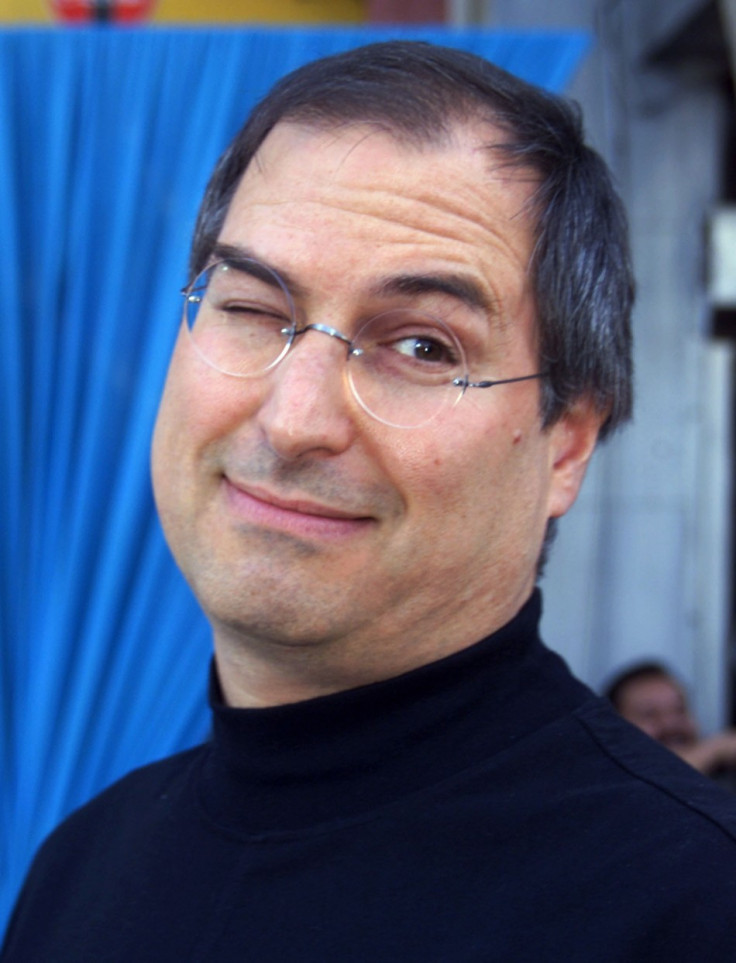Becoming Steve Jobs: Nine things we learned from new biography on Apple co-founder

The latest biography of Steve Jobs has been published and gives us a glimpse inside the world of Apple's co-founder and presents a much different image of a man who was commonly perceived as irritable and irascible.
While this is not an official Apple-sanctioned biography, Becoming Steve Jobs: The Evolution of a Reckless Upstart into a Visionary Leader written by veteran reporters Brent Schlender and Rick Tetzeli, is seen as a counterpoint to Walter Isaacson's 2011 biography which current CEO Tim Cook calls "a tremendous disservice" to his friend.
The new book is based on decades on interviews with Jobs as well as interviews with all of Apple's top executives and Jobs's wife Laurene Powell-Jobs, and has been given the blessing of the company.
However that is not to say this is a fawning piece of revisionist history - Schlender and Tetzeli pull no punches when describing some of what happened during the early days at Apple.
Here are nine talking points the book reveals about the Apple co-founder:
1. Tim Cook's life-saving transplant offer to his friend
Cook and Jobs' relationship was very close and this was exemplified by the fact that Cook offered to give Jobs part of his liver in an attempt to save the CEO's life.
Cook discovered Jobs' cancer had returned in 2009. By this point Jobs had stopped coming to the office completely and Cook made the trip to his home each day to visit his boss.
One afternoon, Cook left the house feeling so upset that he had his own blood tested. He found out that he, like Steve, had a rare blood type, and guessed that it might be the same. He started doing research, and learned that it is possible to transfer a portion of a living person's liver to someone in need of a transplant.
2. NeXT - the emperor's new clothes
The NeXT computer, announced by Jobs on 22 October 1988, three years after he was ousted from Apple, was meant to be the next big thing in workstation computing. But despite becoming the computer of choice for World Wide Web creator Tim Berners-Lee, it was mostly deemed a failure.

The new book tells a story of Jobs demonstrating a product so unreliable and under-developed, it barely worked during the two-and-a-half hour event. But that didn't stop the audience from gasping at its circuit board.
Introducing the NeXT computer called for more sleight of hand than ever. The operating system, which was at least a year away from being released, was buggy. The optical storage drive ran too sluggishly for a demo. But he couldn't wait any longer. Steve needed the event to be a success. The halo of being 'Steve Jobs's next great company' was wearing off; even potential like Steve's comes with an expiration date.
3. F**k Neil Young
The advent of digital music was heralded by the launch of the iPod and iTunes. While millions embraced the new musical revolution, some were not so keen.
Chief amongst them was rock star Neil Young, who derided the quality of MP3 tracks as being inferior to the analogue recordings of his era.
According to the book, Young offered to send Jobs a set of his recordings on vinyl. Jobs's response was less than civil: "F**k Neil Young and f**k his records. You keep them."
4. Not being recognised
Steve Jobs is one of the most recognisable figures of his generation but even as recently as 2005 the Apple co-founder was finding it hard to convince people he was someone of importance.
The books tells the story of Jobs's now famous commencement speech at Stanford in 2005 when he was running late due to losing the keys to his car and had to be driven to the campus by his wife - Laurene Powell-Jobs - and by the time he got there the car park was full and a security guard was not convinced that Jobs, dressed in tattered jeans, Birkenstocks and black T-shirt was who he said he was.
"Really?" the security guard asked when told the keynote speaker was in the car, "Which one?"
5. Gil Amelio's china
It is not news that Jobs wasn't the biggest fan of Gil Amelio, the man brought in to turn the Apple ship around in 1996 before being ousted by Jobs himself the following year. This quote from the book sums up his thought about Amelio:
But how can he be a turnaround expert when he eats his lunch alone in his office, with food served to him on china that looks like it came from Versailles?
6. Jobs told Disney CEO about cancer before his children
In 2006, not many people knew that Steve Jobs' cancer had returned - not even his children. At the same time, Apple and Disney were about to announce the $7.4bn sale of Pixar to Disney and just 30 minutes before the public announcement, Jobs decided it was the perfect time to confide in Disney CEO Robert Iger, telling him his cancer was back and he had "a fifty-fifty chance of living five years".
Igor remembers Jobs telling him: "My kids don't know. Not even the Apple board knows. Nobody knows, and you can't tell anybody."
7. Learning patience

One of the main things we learn from Schlender's and Tetzeli's biography is that the image of Steve Jobs as an irascible and irritable character was one which didn't reflect the Jobs of later years.
This maturity was learned, the authors suggest, during Jobs "wilderness" years when he left Apple and before he returned, specifically his work with Pixar.
One anecdote mentions Jobs "patience" while at Pixar when accepting a lesser role in the development of Toy Story with Disney, something which paid dividends for him in the long run following Toy Story's huge success and Pixar's IPO.
8. Firing people
The common view of Steve Jobs is of a person willing to walk all over people just to get what he wanted. While this may have been the case during his first period at Apple, his rebirth as a more contemplative CEO second time around made firing people a lot more difficult:
When I look at people when this happens, I also think of them as being five years old, kind of like I look at my kids. And I think that that could be me coming home to tell my wife and kids that i just got laid off. Or that it could be one of my kids in twenty years. I never took it so personally before.
9. Jobs' favourite iTunes feature
iTunes is the world's biggest music store and revolutionised the music industry (for better or worse depending on your opinion) but for all its record-breaking sales figures, Steve Jobs's favourite feature was... the "psychedelic visualizer" that generated "trippy, colourful, abstract moving full-screen images derived from whatever music was playing".
© Copyright IBTimes 2025. All rights reserved.






















